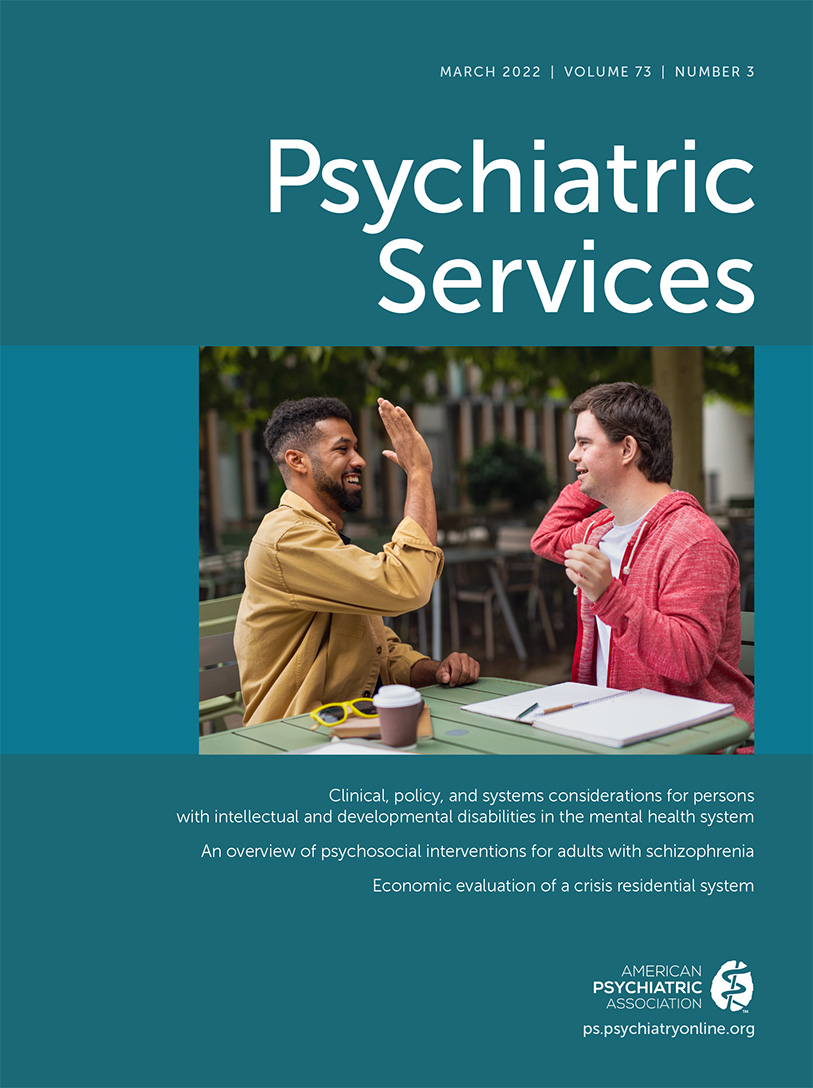Integrated Care Refresh, Part 2: Reverse Integration of Care and Integrated Care in the Inpatient Setting
This Editor’s Choice collection was published online in February 2022. It is the second part of a refreshment of the original January 2019 collection on integrated care. To review all collections, please visit the Editor’s Choice section of ps.psychiatryonline.org.
This second installment of a double collection on Integrated Care focuses on models that strive to improve care and health outcomes for people with serious mental illness. Integration of behavioral health in primary care settings, highlighted in Part 1, most often focuses on the care of people with mild to moderate behavioral health problems. People with serious mental illness face glaring health disparities and decreased life expectancy, largely due to comorbid general medical conditions, and often primarily receive services in specialty mental health settings. Efforts to integrate behavioral health and general medical care for people with serious mental illness seek to address treatment barriers resulting from historically siloed health care systems and bring general medical care to behavioral health settings. These integrated strategies aim to improve access to care, strengthen communication and coordination between providers, and tailor services and build expertise in the care of people with general medical and psychiatric comorbidities.
In this collection, the first set of articles explores the reverse integration of medical care into behavioral health settings. Authors highlight behavioral health homes and other specialty mental health system–based integrated care models, including the incorporation of primary care and cardiometabolic screening into assertive community treatment. The second group of articles features integration of care in the inpatient setting. Authors describe integrated inpatient medical and psychiatric units, advocate for an evidence-based practice approach to evaluating medical-psychiatric units, and describe person-centered approaches to discharge planning for people with serious mental illness. Together, integrated behavioral health in primary care settings, reverse integration in behavioral health settings, and inpatient integrated care models for people with serious medical as well as psychiatric illnesses represent a continued movement toward more comprehensive, person-centered care with the goal to improve health outcomes and care delivery.
REVERSE INTEGRATION IN BEHAVIORAL HEALTH SETTINGS
Integrating Primary Care Into Assertive Community Treatment
Tse J, Cheng JE, Tabasky E, et al.
Psychiatr Serv (Epub Sept 9, 2021)
https://doi.org/10.1176/appi.ps.202100069
Improving Physical Health Among People With Serious Mental Illness: The Role of the Specialty Mental Health Sector
McGinty EE, Presskreischer R, Breslau J, et al.
Psychiatr Serv 2021; 72:1301–1310
https://doi.org/10.1176/appi.ps.202000768
A Continuum-Based Framework as a Practice Assessment Tool for Integration of General Health in Behavioral Health Care
Smali E, Talley RM, Goldman ML, et al.
Psychiatr Serv (Epub Sept 24, 2021)
https://doi.org/10.1176/appi.ps.202000708
Assessing the Long-Term Effectiveness of a Behavioral Health Home for Adults With Bipolar and Psychotic Disorders
Johnson K, Tepper M, Leff HS, et al.
Psychiatr Serv 2022; 73:172–179
https://doi.org/10.1176/appi.ps.202000589
Randomized Trial of a Mobile Personal Health Record for Behavioral Health Homes
Druss BG, Li J, Tapscott S, et al.
Psychiatr Serv 2020; 71:803–809
https://doi.org/10.1176/appi.ps.201900381
Association Between the Maryland Medicaid Behavioral Health Home Program and Cancer Screening in People With Serious Mental Illness
Murphy KA, Daumit GL, Bandara SN, et al.
Psychiatr Serv 2020; 71:608–611
https://doi.org/10.1176/appi.ps.201900299
Systematic Review of the Impact of Behavioral Health Homes on Cardiometabolic Risk Factors for Adults With Serious Mental Illness
Fortuna KL, DiMilia PR, Lohman MC, et al.
Psychiatr Serv 2020; 71:57–74
https://doi.org/10.1176/appi.ps.201800563
Availability of Integrated Primary Care Services in Community Mental Health Care Settings
Brown JD
Psychiatr Serv 2019; 70:499–502
https://doi.org/10.1176/appi.ps.201800448
Perspectives of Individuals With Serious Mental Illness on a Reverse–Colocated Care Model: A Qualitative Study
Talley RM, Rolin SA, Trejo BN, et al.
Psychiatr Serv 2019; 70:793–800
https://doi.org/10.1176/appi.ps.201800480
Integration of Inpatient Care
Organization and Outcomes of Integrated Inpatient Medical and Psychiatric Care Units: A Systematic Review
van Schijndel MA, van Wijngaarden JDH, van de Klundert JJ
Psychiatr Serv 2021; 72:64–76
https://doi.org/10.1176/appi.ps.202000416
Moving Beyond the Status Quo of Integrated Inpatient Medical and Psychiatric Care Units: The Path to Real-World Evaluation
Pinto C, Fabbricotti IN, van Wijngaarden J, et al.
Psychiatr Serv (Epub Oct 27, 2021)
https://doi.org/10.1176/appi.ps.202000811
Taking the Long View in an Inpatient Medical Unit: A Person-Centered, Integrated Team Approach for Patients With Severe Mental Illnesses
Wittink MN, Cross W, Goodman J, et al.
Psychiatr Serv 2020; 71:885–892
https://doi.org/10.1176/appi.ps.201900385
Unmet Opportunity: Intensive Care Transition Intervention for Individuals With Serious Medical-Psychiatric Illnesses
Smith TE, Marino LA, Olfson M, et al.
Psychiatr Serv 2021; 72:856–858



